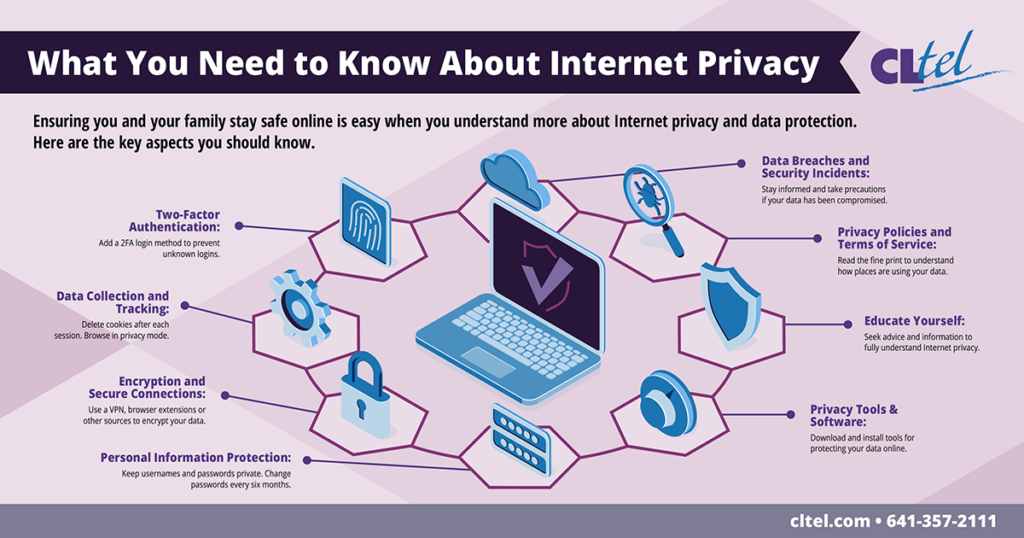Why do we care about internet privacy? It’s not just about avoiding spam or keeping hackers at bay. It’s about something deeper—our need for trust, security, and control in a world that’s becoming increasingly digital. Internet privacy isn’t just a tech issue; it’s a human issue. It’s about our right to be ourselves, to make choices without fear of judgment or exploitation. Let’s explore this idea by starting with why privacy matters and how it connects to our need for a sense of security and autonomy.
Why Personal Information Protection Matters
Imagine a world where every detail about you is exposed—not just your name or email address, but your habits, preferences, and secrets. This is what happens when our personal information is left unprotected. Our personal data is more than just a collection of facts; it’s the story of who we are. If we don’t protect this story, we risk losing control over how it is told and used.
When we keep our usernames and passwords private, we’re not just guarding against a potential data breach. We’re asserting our right to own our narrative. Changing passwords regularly isn’t just about security; it’s about taking control, about saying, “This is my life, my story, and I choose who gets to be a part of it.”
Why Encryption and Secure Connections are Essential
Encryption isn’t just a technical term—it’s a symbol of trust. It’s the lock on the door that keeps our private lives private. When we use a VPN or look for that little padlock icon in our browser, we seek assurance. We’re asking, “Can I trust this connection? Can I trust this network with my information?”
In a world where public WiFi is everywhere and data interception is a constant threat, encryption becomes a necessity. It’s not about hiding something; it’s about ensuring that what we share stays between us and those we choose to share it with. It’s about creating a secure environment where we can express ourselves freely without fear of eavesdropping or exploitation.
Why Staying Informed About Data Breaches is Vital
Data breaches are more than just news headlines; they’re breaches of trust. When our information is exposed, it feels like a personal violation. It’s not just about losing data; it’s about losing our sense of security, our belief that we can trust the systems we interact with daily.
Staying informed about breaches is our way of reclaiming that trust. It’s about being proactive, taking back control in a situation where we often feel powerless. When we act quickly—changing passwords, monitoring accounts—we’re not just protecting ourselves. We’re saying that we won’t be passive victims; we’re active participants in our security.
The Power of Two-Factor Authentication (2FA)
Think of 2FA as a bouncer at the door of your digital life. That extra layer of security asks, “Are you sure you should be here?” It’s an additional safeguard, a way of saying, “I value my privacy enough to take this extra step.”
Enabling 2FA isn’t just about making it harder for hackers to get in; it’s about making a conscious choice to protect what’s important to us. It’s about recognizing that our digital identity is worth defending. Adding this extra layer sends a clear message: “This is my space, and I will do what it takes to keep it secure.”
Why Privacy Tools & Software are Non-Negotiable

Using privacy tools and software is like building a digital fortress. It’s not just about installing an antivirus program or using a privacy-focused browser; it’s about creating an environment where we feel safe. These tools are the guards at our gates, the walls that keep out unwanted intruders.
When we invest in privacy tools, we’re investing in our peace of mind. We’re saying, “I deserve to browse, communicate, and live online without constant fear of being watched or tracked.” It’s about taking ownership of our online experience and ensuring that we can navigate the digital world on our terms.
Understanding Privacy Policies and Terms of Service
Reading privacy policies is not just a legal formality but a self-awareness act. It’s about understanding the value of our data and being intentional about where we place our trust. When we skim through these documents, we miss an opportunity to ask, “Do I really want to share this part of my life with this company?”
By choosing services that are transparent about their data practices, we align ourselves with organizations that respect our privacy. We make a conscious decision to engage with companies that value us not just as users but as individuals with the right to control our own information.
Why Data Collection and Tracking Matter
Every time we delete cookies or use private browsing mode, we choose how we want to be seen online. Tracking isn’t just about ads or recommendations; it’s about shaping a version of us that’s based on data points rather than who we truly are.
By taking steps to limit tracking, we’re asserting our right to be more than just the sum of our clicks and searches. We’re saying, “I am more than the data you collect. I choose how I want to be perceived.” It’s about taking back the narrative and ensuring our online persona aligns with our authentic self.
Educating Ourselves: The Why Behind the How
Finally, staying informed about internet privacy isn’t just about learning how to protect ourselves; it’s about understanding why it’s important. It’s about realizing that privacy is a fundamental human need, one that’s connected to our sense of autonomy, security, and identity. When we seek out knowledge and stay updated on best practices, we’re not just learning how to navigate the digital world but discovering the why behind our actions.
In a world where data is power, understanding internet privacy is our way of reclaiming our power. It’s about making conscious choices, taking deliberate actions, and ensuring that our digital lives are aligned with our values. Because at the end of the day, privacy is more than just a right—it’s an expression of who we are and how we choose to live.




